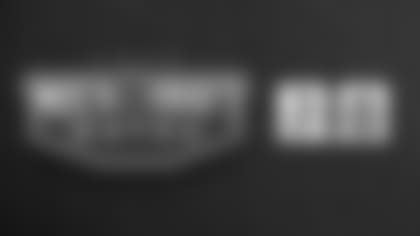It was a game many people thought the Bills needed to contain a highly productive Houston Texans passing offense to pull out a victory. Holding quarterback Matt Schaub to zero touchdowns, the Bills maintained their opportunistic play on defense—recording three takeaways in the first quarter alone. However, the 31-10 loss exposed a more glaring and recurring problem this season. Defending the run.
The Texans rushing attack came into the game ranking a disappointing 31st in rushing yards per game (79.1). The figure was more than doubled Sunday as the Bills gave up 168 yards on the ground, even with starter Steve Slaton contributing all of a single yard.
After scoring three rushing touchdowns as a team all season, backup Ryan Moats had three by himself—all in the fourth quarter—finishing with a career-high 126 yards on 23 carries. That makes it five out of eight contests the Bills have yield 160 or more yards rushing and a main reason they stay entrenched dead last in that category in the league rankings.
Although Moats earned large chunks of yardage in the first half, evidenced by 6.7 yards a carry, Houston failed to score a touchdown as the Bills went into the break leading 10-6. The second half was a different story as the Texans held possession just over 20 minutes because of the Bills inability to end drives as Houston scored 25 unanswered points.
"It's just difficult when you need the stops and just aren't getting them. In the second half, we needed to get the stops and just didn't do it, the defense as a whole," Terrence McGee said. "It's something we've got to go back and correct."
Similar to previous weeks, going to the drawing boards and studying film will be an important task yet again. In addition to healing a number of injuries that have plagued the team all season, the coaching staff must find ways to shore up the overstated problems in countering opposing rushing games.
After turning in an improved performance against Carolina's formidable duo of DeAngelo Williams and Jonathan Stewart last week, the Bills reverted back to their old ways. On the field for 39:08, the defense progressively weakened yielding 4.7 yards per carry.
Paul Posluszny said the blame for this glaring statistic falls on the defense's shoulders, especially letting three-and-out opportunities fall by the wayside.
"We're on the field a lot but if that's the way it's going to be than that's the way it's going to be. We're going to have to deal with that throughout the year," he said. "We want to be out there because we feel like it gives us an opportunity to make plays. And when it's the third and fourth quarter and we're on the field and they're on those long drives, that's on us."
Staying on the field for that duration of time is difficult no matter the defense, a reason Posluszny believes the physical strain will take a permanent toll if errors are not corrected immediately.
"The pounding, we just can't have that throughout the year. It's not good for the team," he said. "It chews up too much time. It's not good for our defense so we have to find an answer for that. We can't let a team just consistently drive down the field, take up all that time with long drives for all those yards. That's something we have to stop. I thought we played well in the first half, but in the second half those long drives took its toll. We've got to stop that."
George Wilson agreed with his teammate, saying the team failed to win third down situations and allowed the Texans backs to chip away with too many four and five yard runs.
"They got a lot of opportunities. Some with the long field and the whole field to go and some with the short field," Wilson said. "They just always found a way to move the chains and just keep us out there another series."
In a defense that preaches gap responsibility, missed assignments could be seen on several plays including Moats' first of three scores with 14:17 remaining in the final quarter. Capping off a ten play drive, the fifth-year back from Louisiana Tech charged right through the gut of the Bills defense unscathed.
"I thought it was a boot when the tight end came back and I got out of my gap and it ran right where I should have been. That was all on me," Posluszny said.
While the defense was quick to outline its mistakes, members of the offense said getting nearly doubled in time of possession and not sustaining drives shouldn't happen.
"The defense just wore down. We weren't running the ball and converting third downs to allow them to catch their breath," Ryan Fitzpatrick said. "When you leave your defense on the field for that long it's bound to happen. We have to get better on offense and we're going to look for ways to do it."
Despite the lack of production, Posluszny said the defensive unit needs to improve its execution and make stops on a consistent basis.
"Anytime we are on the field for an extended period of time we feel like that's our responsibility," he said. "We need to be able to go out there and make the plays we need to make to get off the field."





